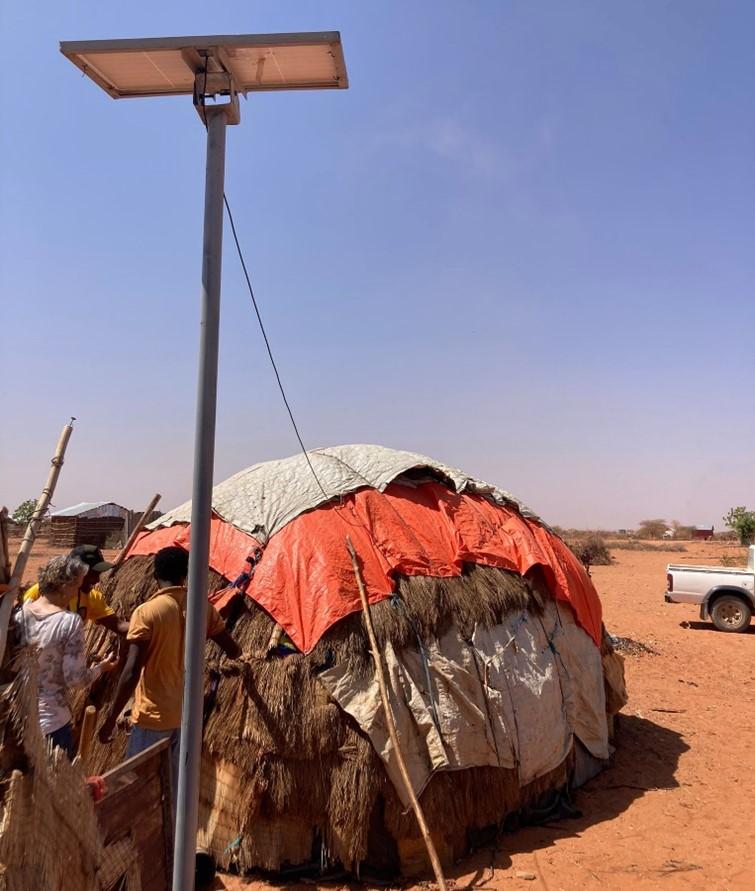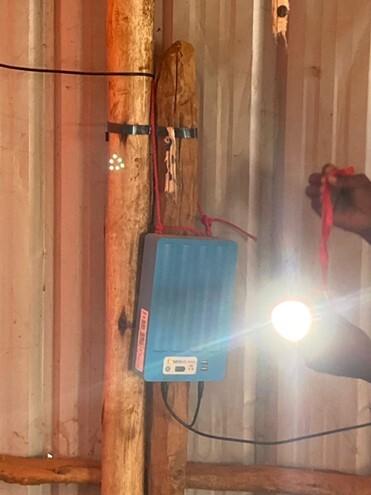
A Game-Changing Initiative by the Shire Alliance
Alianza Shire, a collaborative multi-stakeholder partnership, has initiated a transformative project with the objective of enhancing living conditions in refugee camps and host communities. The initiative, titled "Shire Alliance: Energy access for host communities and refugees in Ethiopia," is co-funded by the European Union Emergency Trust Fund for Africa and implemented by various entities, including the Spanish Agency for International Development Cooperation (AECID), as well as leading Spanish private entities in renewable energy and lighting sectors such as acciona.org, Iberdrola, and Signify; and the Innovation and Technology for Development Centre at the Universidad Politécnica de Madrid (itdUPM).
Together, these stakeholders are dedicated to improving the lives of individuals residing in refugee camps and host communities thanks to the cross-cutting impact of energy.
The project's primary objective is to uplift the lives of refugees and host communities by enhancing local capacity, creating livelihood opportunities, and improving access to basic services through the multifaceted impacts of energy. Currently, the project is centered around Dollo Ado, in the Ethiopian Somali region, in close collaboration with different entities in Ethiopia, including ZOA, the United Nations Refugee Agency (UNHCR), the Refugees and Returnees Service (RRS, former ARRA), Save the Environment Ethiopia (SEE), the in-line ministries, regional bureau, and woredas.
The initiative encompasses two key strategies. Firstly, it aims to enhance access to basic services in refugee camps through the supply of sustainable energy to communal services and street lighting. Secondly, it seeks to create livelihood opportunities and improve the quality of life of refugees and host communities through capacity building, creation of businesses based on solar technology and distribution of solar home systems (SHS), fostering employment and economic development.
Implementation and Impact of Solar Home Systems
In February, as part of the project’s demonstration phase, 10 Solar Home Systems were installed at Hilaweyn refugee camp. The Alianza Shire project plans to install a total of 2,000 solar systems, benefitting approximately 15,000 people in the displaced settlement and its host community. The market-based delivery model design developed based on the expertise of the Acciona Foundation ensures efficient implementation, building upon previous successful projects.
Previous experiences have shown the positive impact of electricity access, enabling increased study time leading to higher levels of education, extended work hours promoting economic development and enhanced family time with increased interactions. These benefits are all achieved through an environmentally friendly solution.
The project’s economic model was designed with a sustainable, long-term vision in mind. Users will pay a monthly fee in exchange for an energy service and Solar Home System maintenance and replacement in case of device failure. The collected fees are managed by the local energy cooperative, responsible for the operational and maintenance expenses. In addition, with the payment receipt, the cooperative generates an unlocking code for the function of the SHS. This economic model ensures the project’s financial sustainability for the next 10 years, with expenses carefully managed to match or be lower than the monthly fees.
For the demonstration phase, vulnerable households were selected after conducting a socioeconomical analysis, and they are currently exempt from paying the monthly fee. The Solar Home System enable the beneficiaries to meet their basic energy needs.
These stand-alone photovoltaic systems installed, allow users to power some devices. During the day, they could make use of the energy directly from the solar panel to charging two mobile phones, torches, operating a fan for 4 hours, and watching television for 3 hours. At night, the battery storage enables the use of two LED lights for five hours, watching television and two hours of fan usage. This performance contributes to social, economic and environmental positive impacts mentioned earlier.
Initial reports indicate that beneficiaries and the local stakeholders have warmly embraced the project. Thus, positive reception provides valuable insights for the scaling-up and future phases of the Alianza Shire’s project.
More about this project:
Alianza Shire works in the Dollo Ado refugee camps (Hilaweyn and Kobe), which are located in southeastern Ethiopia, close to the border with Somalia and Kenya. According to UNHCR data of March 2023, approximately 207,000 refugees are registered in these camps.
In this context, the establishment of Solar Home Systems are focused on Hilaweyn refugee camp and its host communities. Regarding the beneficiaries, it is expected that approx. 13.500 people will improve their level of access to energy, from Tier 0 or 1 to Tier 2 as per Sustainable Energy for all (SEforALL). This improvements will be balanced across refugee camps, host communities and gender, with a 50% distribution. Additionally, the beneficiary population will be trained in the use and maintenance of the Solar Home System and business management (in the case of the local cooperative that will work in the project).
Details
- Publication date
- 20 June 2023
- Author
- Directorate-General for International Partnerships
- Region and Country
- Horn of Africa
- Ethiopia
- Thematic
- Strengthening resilience of communities
- Partner
- AECID
- United Nations High Commissioner for Refugees




